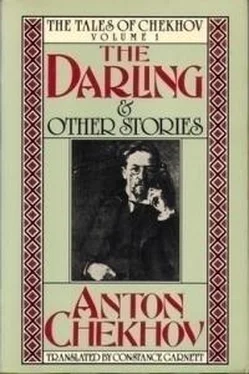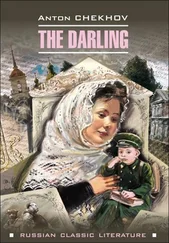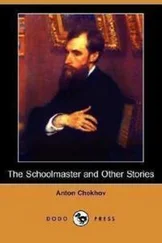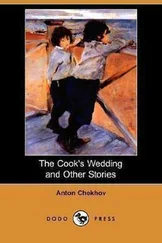Антон Чехов - The Darling
Здесь есть возможность читать онлайн «Антон Чехов - The Darling» — ознакомительный отрывок электронной книги совершенно бесплатно, а после прочтения отрывка купить полную версию. В некоторых случаях можно слушать аудио, скачать через торрент в формате fb2 и присутствует краткое содержание. Год выпуска: 2014, Издательство: epubBooks Classics, Жанр: Классическая проза, на английском языке. Описание произведения, (предисловие) а так же отзывы посетителей доступны на портале библиотеки ЛибКат.
- Название:The Darling
- Автор:
- Издательство:epubBooks Classics
- Жанр:
- Год:2014
- ISBN:нет данных
- Рейтинг книги:5 / 5. Голосов: 1
-
Избранное:Добавить в избранное
- Отзывы:
-
Ваша оценка:
- 100
- 1
- 2
- 3
- 4
- 5
The Darling: краткое содержание, описание и аннотация
Предлагаем к чтению аннотацию, описание, краткое содержание или предисловие (зависит от того, что написал сам автор книги «The Darling»). Если вы не нашли необходимую информацию о книге — напишите в комментариях, мы постараемся отыскать её.
The Darling — читать онлайн ознакомительный отрывок
Ниже представлен текст книги, разбитый по страницам. Система сохранения места последней прочитанной страницы, позволяет с удобством читать онлайн бесплатно книгу «The Darling», без необходимости каждый раз заново искать на чём Вы остановились. Поставьте закладку, и сможете в любой момент перейти на страницу, на которой закончили чтение.
Интервал:
Закладка:
The winter passed cheerlessly. Card–playing was the rule everywhere in Moscow, and if any other recreation was attempted, such as singing, reading, drawing, the result was even more tedious. And since there were few talented people in Moscow, and the same singers and reciters performed at every entertainment, even the enjoyment of art gradually palled and became for many people a tiresome and monotonous social duty.
Moreover, the Laptevs never had a day without something vexatious happening. Old Laptev's eyesight was failing; he no longer went to the warehouse, and the oculist told them that he would soon be blind. Fyodor had for some reason given up going to the warehouse and spent his time sitting at home writing something. Panaurov had got a post in another town, and had been promoted an actual civil councillor, and was now staying at the Dresden. He came to the Laptevs' almost every day to ask for money. Kish had finished his studies at last, and while waiting for Laptev to find him a job, used to spend whole days at a time with them, telling them long, tedious stories. All this was irritating and exhausting, and made daily life unpleasant.
Pyotr came into the study, and announced an unknown lady. On the card he brought in was the name "Josephina Iosefovna Milan."
Yulia Sergeyevna got up languidly and went out limping slightly, as her foot had gone to sleep. In the doorway appeared a pale, thin lady with dark eyebrows, dressed altogether in black. She clasped her hands on her bosom and said supplicatingly:
"M. Laptev, save my children!"
The jingle of her bracelets sounded familiar to him, and he knew the face with patches of powder on it; he recognised her as the lady with whom he had once so inappropriately dined before his marriage. It was Panaurov's second wife.
"Save my children," she repeated, and her face suddenly quivered and looked old and pitiful. "You alone can save us, and I have spent my last penny coming to Moscow to see you! My children are starving!"
She made a motion as though she were going to fall on her knees. Laptev was alarmed, and clutched her by the arm.
"Sit down, sit down … " he muttered, making her sit down. "I beg you to be seated."
"We have no money to buy bread," she said. "Grigory Nikolaevitch is going away to a new post, but he will not take the children and me with him, and the money which you so generously send us he spends only on himself. What are we to do? What? My poor, unhappy children!"
"Calm yourself, I beg. I will give orders that that money shall be made payable to you."
She began sobbing, and then grew calmer, and he noticed that the tears had made little pathways through the powder on her cheeks, and that she was growing a moustache.
"You are infinitely generous, M. Laptev. But be our guardian angel, our good fairy, persuade Grigory Nikolaevitch not to abandon me, but to take me with him. You know I love him—I love him insanely; he's the comfort of my life."
Laptev gave her a hundred roubles, and promised to talk to Panaurov, and saw her out to the hall in trepidation the whole time, for fear she should break into sobs or fall on her knees.
After her, Kish made his appearance. Then Kostya came in with his photographic apparatus. Of late he had been attracted by photography and took photographs of every one in the house several times a day. This new pursuit caused him many disappointments, and he had actually grown thinner.
Before evening tea Fyodor arrived. Sitting in a corner in the study, he opened a book and stared for a long time at a page, obviously not reading. Then he spent a long time drinking tea; his face turned red. In his presence Laptev felt a load on his heart; even his silence was irksome to him.
"Russia may be congratulated on the appearance of a new author," said Fyodor. "Joking apart, though, brother, I have turned out a little article—the firstfruits of my pen, so to say—and I've brought it to show you. Read it, dear boy, and tell me your opinion —but sincerely."
He took a manuscript out of his pocket and gave it to his brother. The article was called "The Russian Soul"; it was written tediously, in the colourless style in which people with no talent, but full of secret vanity, usually write. The leading idea of it was that the intellectual man has the right to disbelieve in the supernatural, but it is his duty to conceal his lack of faith, that he may not be a stumbling–block and shake the faith of others. Without faith there is no idealism, and idealism is destined to save Europe and guide humanity into the true path.
"But you don't say what Europe has to be saved from," said Laptev.
"That's intelligible of itself."
"Nothing is intelligible," said Laptev, and he walked about the room in agitation. "It's not intelligible to me why you wrote it. But that's your business."
"I want to publish it in pamphlet form."
"That's your affair."
They were silent for a minute. Fyodor sighed and said:
"It's an immense regret to me, dear brother, that we think differently. Oh, Alyosha, Alyosha, my darling brother! You and I are true Russians, true believers, men of broad nature; all of these German and Jewish crochets are not for us. You and I are not wretched upstarts, you know, but representatives of a distinguished merchant family."
"What do you mean by a distinguished family?" said Laptev, restraining his irritation. "A distinguished family! The landowners beat our grandfather and every low little government clerk punched him in the face. Our grandfather thrashed our father, and our father thrashed us. What has your distinguished family done for us? What sort of nerves, what sort of blood, have we inherited? For nearly three years you've been arguing like an ignorant deacon, and talking all sorts of nonsense, and now you've written—this slavish drivel here! While I, while I! Look at me…. No elasticity, no boldness, no strength of will; I tremble over every step I take as though I should be flogged for it. I am timid before nonentities, idiots, brutes, who are immeasurably my inferiors mentally and morally; I am afraid of porters, doorkeepers, policemen, gendarmes. I am afraid of every one, because I was born of a mother who was terrified, and because from a child I was beaten and frightened! … You and I will do well to have no children. Oh, God, grant that this distinguished merchant family may die with us!"
Yulia Sergeyevna came into the study and sat down at the table.
"Are you arguing about something here?" she asked. "Am I interrupting?"
"No, little sister," answered Fyodor. "Our discussion was of principles. Here, you are abusing the family," he added, turning to his brother. "That family has created a business worth a million, though. That stands for something, anyway!"
"A great distinction—a business worth a million! A man with no particular brains, without abilities, by chance becomes a trader, and then when he has grown rich he goes on trading from day to day, with no sort of system, with no aim, without having any particular greed for money. He trades mechanically, and money comes to him of itself, without his going to meet it. He sits all his life at his work, likes it only because he can domineer over his clerks and get the better of his customers. He's a churchwarden because he can domineer over the choristers and keep them under his thumb; he's the patron of a school because he likes to feel the teacher is his subordinate and enjoys lording it over him. The merchant does not love trading, he loves dominating, and your warehouse is not so much a commercial establishment as a torture chamber! And for a business like yours, you want clerks who have been deprived of individual character and personal life—and you make them such by forcing them in childhood to lick the dust for a crust of bread, and you've trained them from childhood to believe that you are their benefactors. No fear of your taking a university man into your warehouse!"
Читать дальшеИнтервал:
Закладка:
Похожие книги на «The Darling»
Представляем Вашему вниманию похожие книги на «The Darling» списком для выбора. Мы отобрали схожую по названию и смыслу литературу в надежде предоставить читателям больше вариантов отыскать новые, интересные, ещё непрочитанные произведения.
Обсуждение, отзывы о книге «The Darling» и просто собственные мнения читателей. Оставьте ваши комментарии, напишите, что Вы думаете о произведении, его смысле или главных героях. Укажите что конкретно понравилось, а что нет, и почему Вы так считаете.












